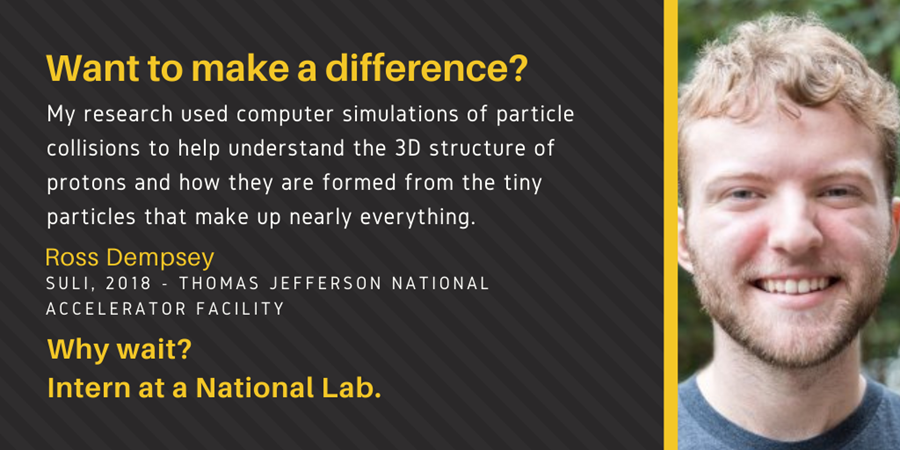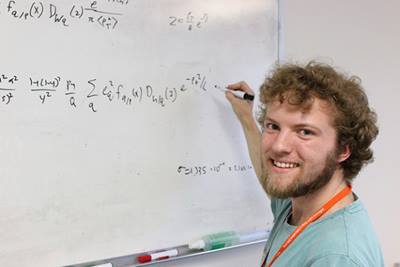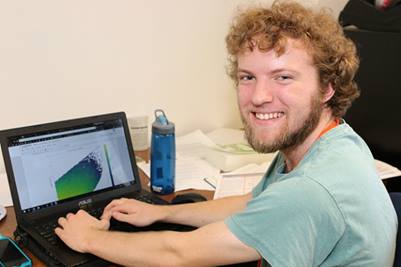Ross Dempsey
SULI intern studied the 3D structure of protons

Internship program: SULI
Year: Summer 2018
Undergraduate institution: John Hopkins University
Major: Physics
Host DOE laboratory: Thomas Jefferson National Accelerator Facility (TJNAF), Newport News, Virginia
Mentor name: Wally Melnitchouk
What was your research topic during your internship?
At Jefferson Lab, nuclear physicists accelerate electrons around a large underground racetrack and collide them into protons, and carefully study the debris which comes out in order to better understand the structure of protons. It's like looking at the splatter in a microwave after someone heats up tomato sauce, and using that data to figure out what tomatoes taste like. I worked in the theory center at Jefferson Lab, using computer simulations of particle collisions to determine the feasibility of using experiments at Jefferson Lab to pinpoint the 3D structure of protons. Historically a lot of this work has been done only in one dimension – new experiments targeted at 3D proton structure will bring us closer to understanding how they are formed from tiny particles, called quarks and gluons, which make up nearly everything.
What was it like coming to a National Lab for your internship?
I was first introduced to Jefferson Lab by the Department of Energy's National Science Bowl competition, which was held on-site at the Lab every year. After years of showing up on Saturdays as a student, it was exciting to start coming into the Lab on weekdays and to call it my workplace for the summer. I enjoyed meeting the many physicists working at Jefferson Lab and learning more about the scientific mission there. It was also a delight to spend the summer with the other interns and to share our experiences and interests.
What do you currently do, and where do you hope your career takes you?
I am a graduate student in physics at Princeton University, where I'll be for the next several years. Afterwards, I hope to continue working in physics research in some capacity.
Think of a time you experienced success during your academic or professional career. What did this success look like?
While working on theoretical research at my undergraduate institution, I took a problem my collaborators and I had been working on for months and looked at it in a new way. I ended up uncovering a new way of framing a relationship between two theories - classical gauge theory and general relativity - and this became a significant part of the paper we ended up writing. The experience made me more confident in my ability to do theoretical physics.
Think of a time you experienced failure during your academic or professional career. How did you feel at the time? How did you deal with the failure and work past it?
Midway through my internship at Jefferson Lab, I discovered a bug in my simulation code which caused all the simulation data to be reported relative to an observer moving at near light speed, rather than the stationary observers at the lab. I felt embarrassed that the difficulties in interpreting the data were due to this error of mine, but also relieved that the scientific problems would become easier once the error was corrected. I fixed my code and showed the new data to my supervisors, and we were able to make significant progress in tackling the questions before us.



